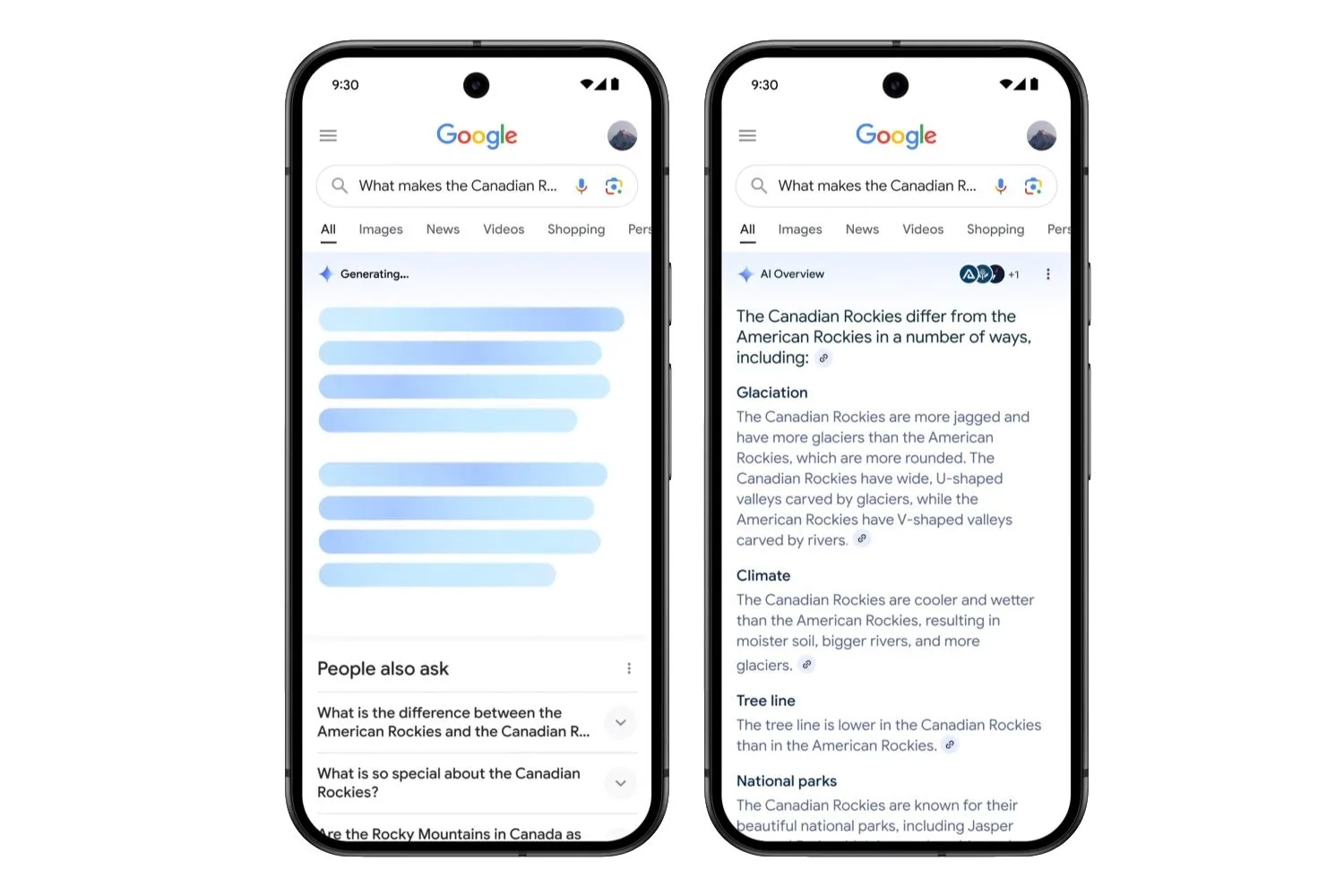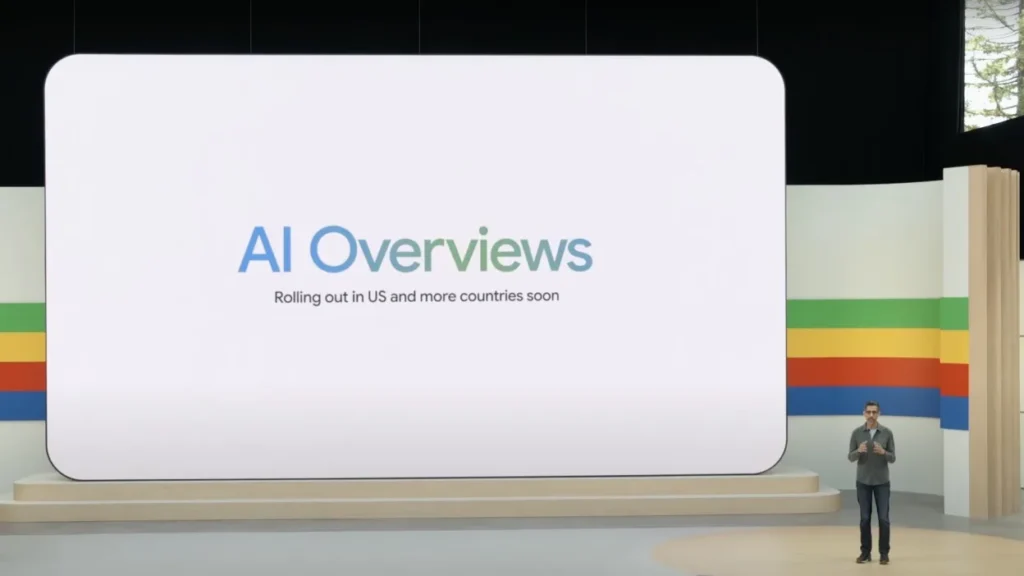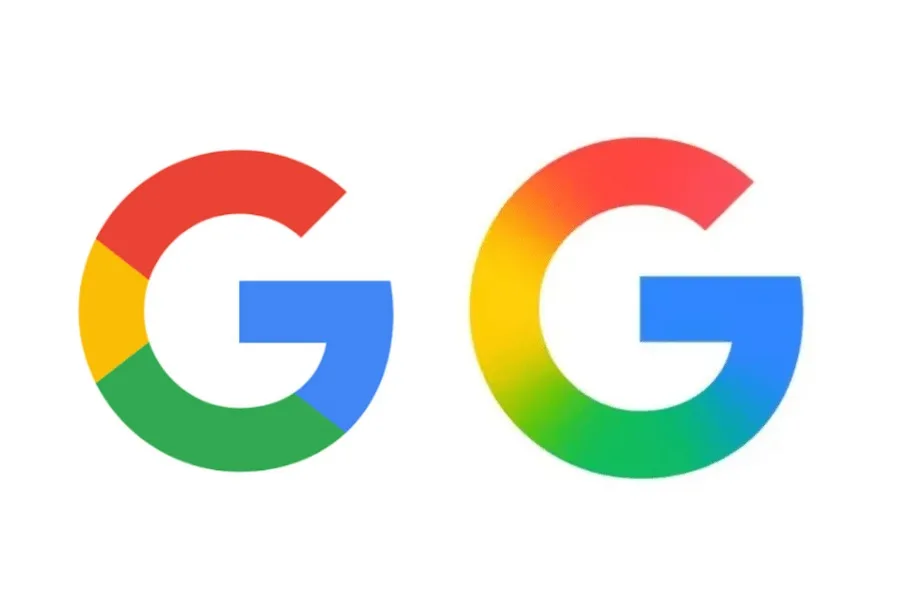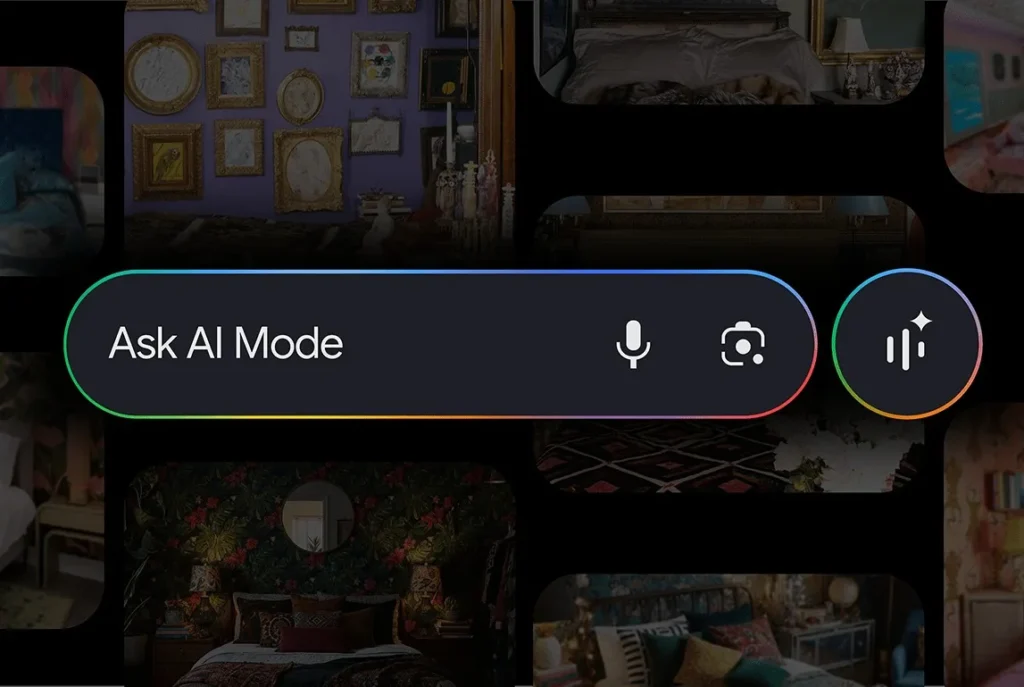Google defends AI in its search: no drop in traffic according to the firm
As the integration of artificial intelligence into Google Search faces fierce criticism from the online media industry, the Mountain View company is stepping up to defend its stance.
In a blog post published this Wednesday, Liz Reid, vice president of Google Search, asserts that the volume of clicks remains largely stable compared to last year, and denies allegations that AI-generated summaries are harming website traffic.
AI summaries of Google at the heart of controversy
For the past few months, the “AI Overviews” — automatic summaries that appear at the top of search results — have been a source of discontent. These AI-generated responses from Google aim to synthesize the sought-after information without requiring users to click on a link.

However, according to a study by the Pew Research Center, these new formats actually encourage users less to visit source websites. As a result, several major American media outlets, including The Washington Post, HuffPost, and Business Insider, have reported a significant drop in traffic, even resulting in layoffs.
Google disputes the figures and defends its model
Liz Reid directly addresses these criticisms: according to Google’s internal data, the traffic generated by the search engine has not experienced a significant decline and is even beneficial to certain types of content. She accuses some third-party studies of relying on “biased” or “limited” methodologies.
Nevertheless, she acknowledges that search habits are evolving, causing disparities: some sites are losing traffic, while others are benefiting from it. Google claims to have seen an increase in traffic towards forums, videos, podcasts, and websites providing authentic voices, detailed reviews, original analyses, or niche content.
A “more qualified” traffic thanks to AI?
Another argument put forth by Google: even if some users do not click directly on the links present in AI summaries, those who do tend to spend more time on the pages viewed, exploring topics in greater depth. “An AI response provides a general overview, but people click to delve deeper. And those clicks are more valuable,” Reid states.
This positioning aligns with Google’s overarching strategy: to provide a search experience assisted by AI, without cutting publishers off from their sources of monetization.
A redefinition of the web… without creators?
However, skepticism is growing among content publishers, particularly among smaller creators and independent media. Recent updates to the search algorithm have already caused damage, pushing many sites out of the top results. Now, with the massive integration of AI into search — especially with the rollout of the “AI Mode” in the United States — many fear a marginalization of traditional websites.
Moreover, Google is currently testing a new AI results interface, where generated responses occupy even more space, to the detriment of traditional links.
A model to rethink for publishers?
For digital publishers, this evolution poses a fundamental dilemma: how to exist in a web where Google synthesizes everything and limits outbound clicks? For now, Google assures that the balance between user experience and visibility of sources remains intact. But for many professionals, the economic model of free content funded by advertising is seriously called into question.
Some are already calling for new forms of collaboration between search engines and creators, based on revenue sharing, guaranteed visibility, or even licensing agreements on the data used to train AI.
Google seeks to reassure… but the gap widens
With this official communication, Google tries to calm concerns and take control of an increasingly heated debate. Yet behind the positive rhetoric, the anxieties of publishers are real, and the ecosystem of freely accessible web content seems more fragile than ever.
Between promises of “more relevant” traffic and fears of an AI hegemony over information, the future of online search is at stake.




